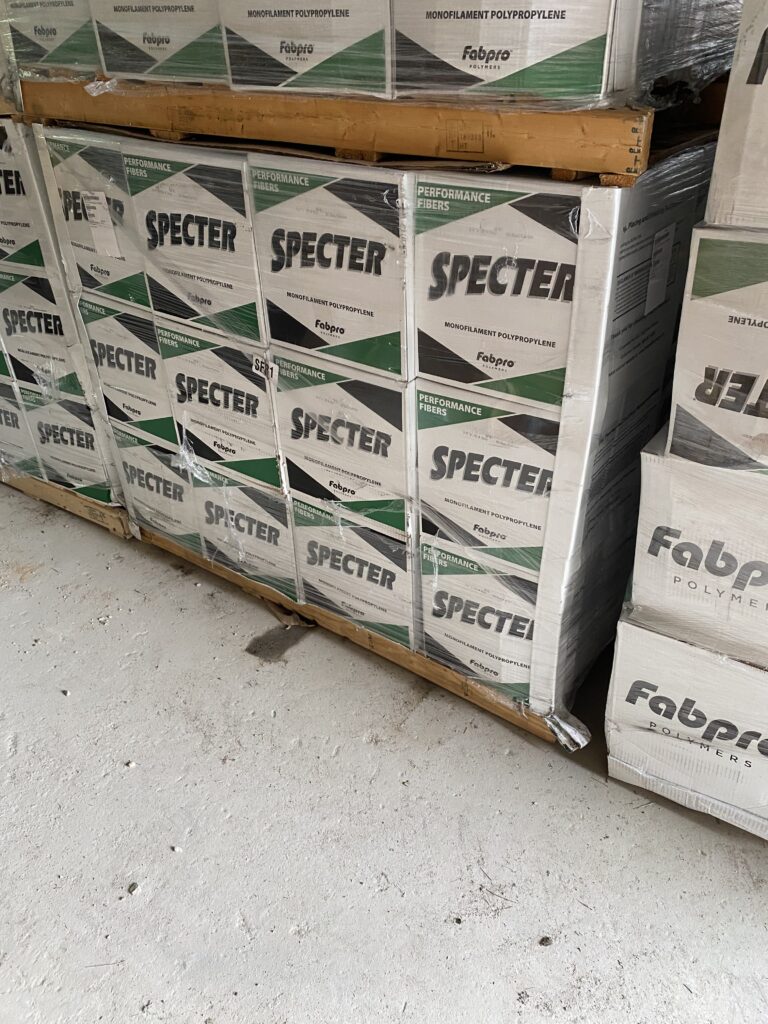Why Add Fiber in Concrete? Guide to Types and Benefits of Concrete Fiber
Adding fiber to concrete is a smart way to make it stronger and last longer. Let’s explore what fiber-reinforced concrete is, why you should use it, and the different types of concrete fiber available.
What Is Fiber-Reinforced Concrete?
Fiber-reinforced concrete is concrete mixed with tiny fibers. These fibers help hold the concrete together and stop cracks from forming. The fibers spread throughout the mix, so the concrete is strong in all directions.

Why Add Fiber to Concrete?
Adding fiber to concrete can have many benefits:
- Fewer Cracks – Fibers can help stop cracks before they start.
- Stronger Concrete – Fibers can make the concrete tougher and more flexible.
- Better Durability – Concrete typically lasts longer when fibers are added.
- Less Steel Needed – In some cases, you don’t need as much rebar or wire mesh.
These benefits are great for driveways, floors, sidewalks, and more.
Concrete Fiber Types
There are many types of fiber used in concrete. Each type helps in different ways:
1. Polypropylene Fibers in Concrete
- Plastic-like material.
- Good for stopping small cracks while the concrete dries.
- Common in-home projects and slabs.
2. Steel Fibers
- Strong metal fibers.
- Good for heavy-duty areas like warehouses.
- Adds strength and helps with impact resistance.
3. Glass Fiber
- Made with fine glass strands.
- Looks nice and is strong.
- Great for decorative concrete and panels.
4. Synthetic Fibers
- Made from materials like nylon or polyester
- Help the concrete hold up in all kinds of weather.
- Useful in sidewalks, floors, and more.
How to Add Fiber to Concrete
You can add fiber at the mixing stage. Most fibers come with instructions. Follow the directions to get the right amount. Mix well to spread the fibers evenly.
This step is simple, but it makes a big difference in how your concrete performs.
Common Questions
- Is fiber better than rebar? Fibers help with cracks and wear, but they don’t replace rebar in strong, load-bearing areas.
- Does fiber make concrete harder to finish? It can, but if you use the right type and mix it well, you can still get a smooth finish.
- Is it expensive? That depends. Fibers do cost a little more, but they can potentially save money by reducing repairs and maintenance later.
Where to Use Fiber-Reinforced Concrete
Here are some common uses:
- Driveways
- Garage floors
- Patios and walkways
- Precast concrete products
- Commercial slabs and foundations
If you want strong, long-lasting concrete, adding fiber is a great idea.
Local Tip: Concrete in Fayetteville, NC
If you’re in Fayetteville, North Carolina, and want high-quality fiber-reinforced concrete, we’re here to help. Our team can recommend the right fiber type for your job and deliver a ready-mix you can trust.
Need Help?
Concrete Service Company has years of experience with concrete fiber types and fiber-reinforced concrete. Whether you’re building a new driveway or working on a large commercial job, we’ve got you covered.






